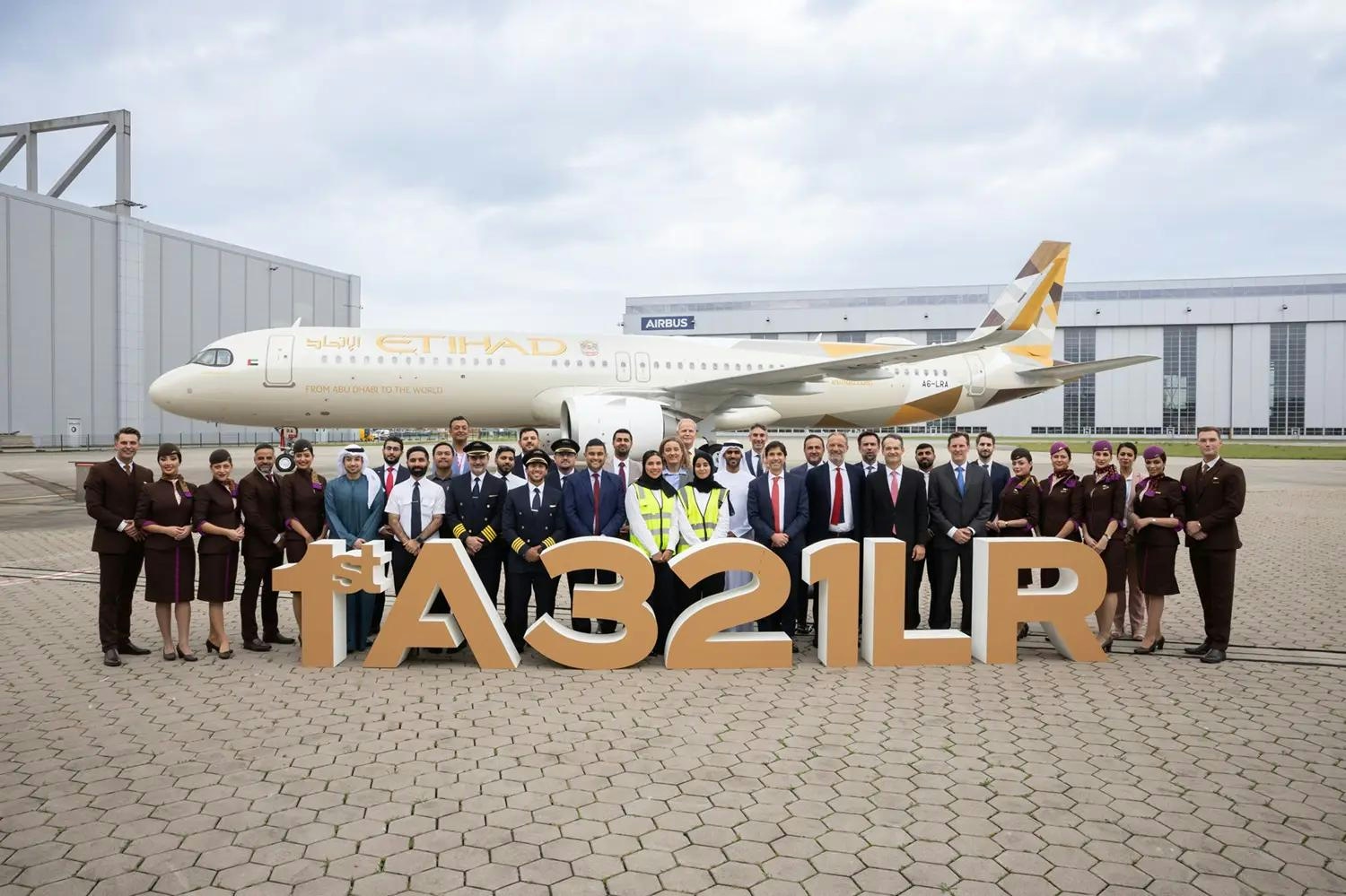AeroGenie — 您的智能副驾驶。
热门趋势
Categories
Etihad Airways Expands Fleet with Record Aircraft Deliveries

Etihad Airways Expands Fleet with Record Aircraft Deliveries
Etihad Airways has achieved a significant milestone in its fleet expansion programme, with July 2025 marking the busiest month for aircraft deliveries in the airline’s 22-year history. During this period, the carrier took delivery of five new aircraft, including its first Airbus A321LR, two Boeing 787 Dreamliners, one Airbus A350-1000, and one Airbus A320ceo. This unprecedented influx of aircraft highlights Etihad’s commitment to rapid growth as it aims to transport 38 million passengers annually by 2030.
Strategic Fleet Enhancement and Network Growth
The new aircraft will substantially increase Etihad’s capacity across its expanding global network. Antonoaldo Neves, Chief Executive Officer of Etihad Airways, described July as a “remarkable month” and the airline’s “most intensive delivery programme to date,” emphasizing that these additions will enable the airline to serve more destinations, increase flight frequencies, and maintain the high standards of service expected by its customers.
Each aircraft type has been selected to meet specific operational requirements. The Boeing 787 Dreamliners are designated for long-haul routes to Asia, Australia, and North America, while the Airbus A350-1000 will bolster capacity on high-demand sectors. Notably, the arrival of Etihad’s first Airbus A321LR represents a significant advancement in the airline’s narrowbody operations. This aircraft introduces a new level of luxury to medium and short-haul routes, featuring dedicated First Suites and lie-flat Business seats—a regional first for narrowbody aircraft—alongside enhanced Economy seating equipped with seatback entertainment systems.
With these deliveries, Etihad’s fleet now comprises 106 aircraft, maintaining one of the youngest fleets globally with an average age of 8.7 years. This modern fleet supports both operational efficiency and an elevated passenger experience. The expansion aligns with Etihad’s recently announced network growth, which includes 27 new destinations and increased frequencies on existing routes.
Navigating Industry Challenges Amid Expansion
Despite its ambitious growth, Etihad continues to face challenges related to the ongoing Pratt & Whitney GTF engine issues, which have grounded a significant portion of its fleet and affected operations across the aviation sector. In response, the airline has strategically adjusted its network, capitalizing on market opportunities created by Wizz Air’s withdrawal from Abu Dhabi. Etihad has launched new routes to Krakow, Salalah, and Al Alamein, aiming to fill these gaps and sustain momentum despite operational headwinds.
Competitors are closely monitoring Etihad’s expansion, with some attempting to leverage the airline’s growing network to attract passengers while managing their own responses to the GTF engine disruptions.
Over the past 12 months, Etihad has experienced remarkable growth, carrying more than 20 million passengers—doubling its figures from 2022. The airline plans to continue its fleet expansion, expecting to receive 20 additional aircraft annually through 2025 and 2026. By growing its fleet and network, Etihad is reinforcing Abu Dhabi’s position as a global aviation hub and enhancing travel experiences for millions worldwide.

Factors Positioning Airbus for Leadership in 2026

Emirates Unveils Cabin Design for New Boeing 777X

Eighteen Years On, the Airbus A380 Remains Central to a $34 Billion Airline

How a boom in luxury airline seats is slowing down jet deliveries

Navitaire Outage Attributed to Planned Maintenance

Airbus Plans Record Delivery of 870 Aircraft in 2026

DigiYatra Debuts Outside Aviation at India AI Impact Summit

Vietnam Orders Strengthen Boeing’s Commercial Outlook

Airbus Signals Uncertainty Over Future A400M Orders

JobsOhio Awards $2 Million Grant to Hartzell Propeller for Innovation Center
